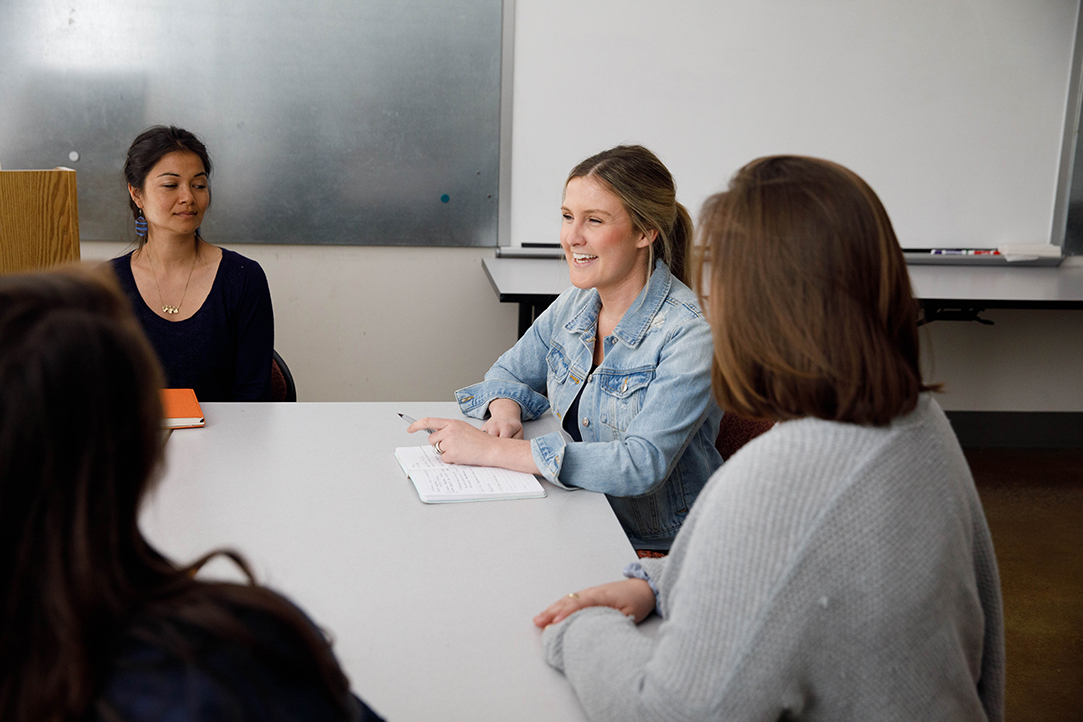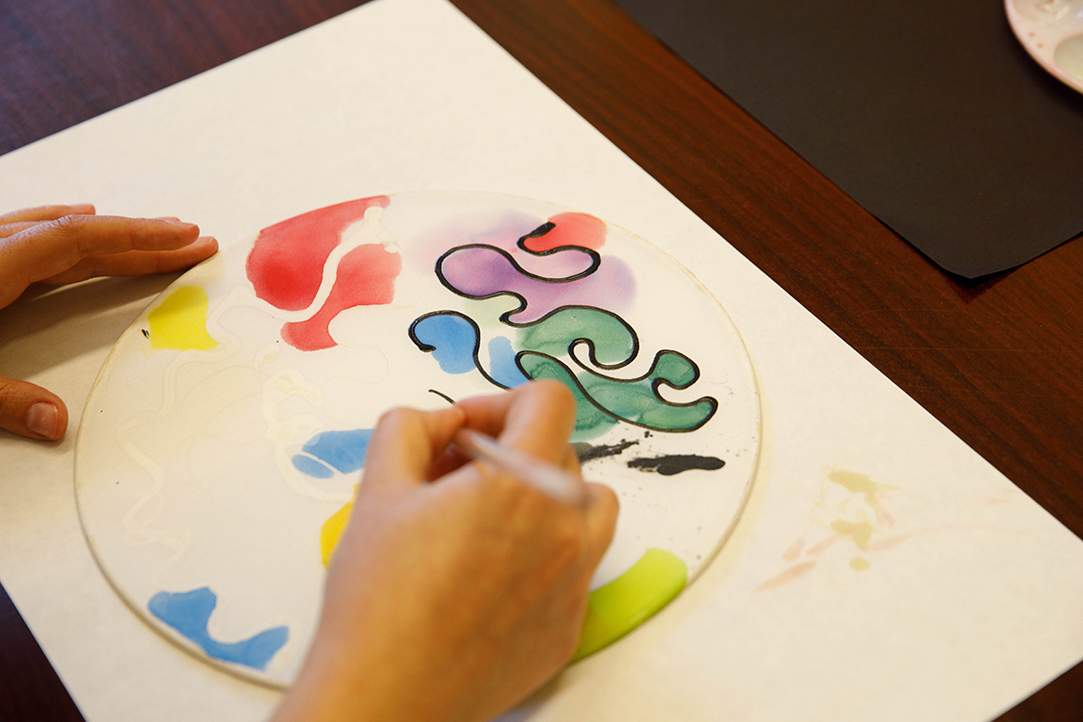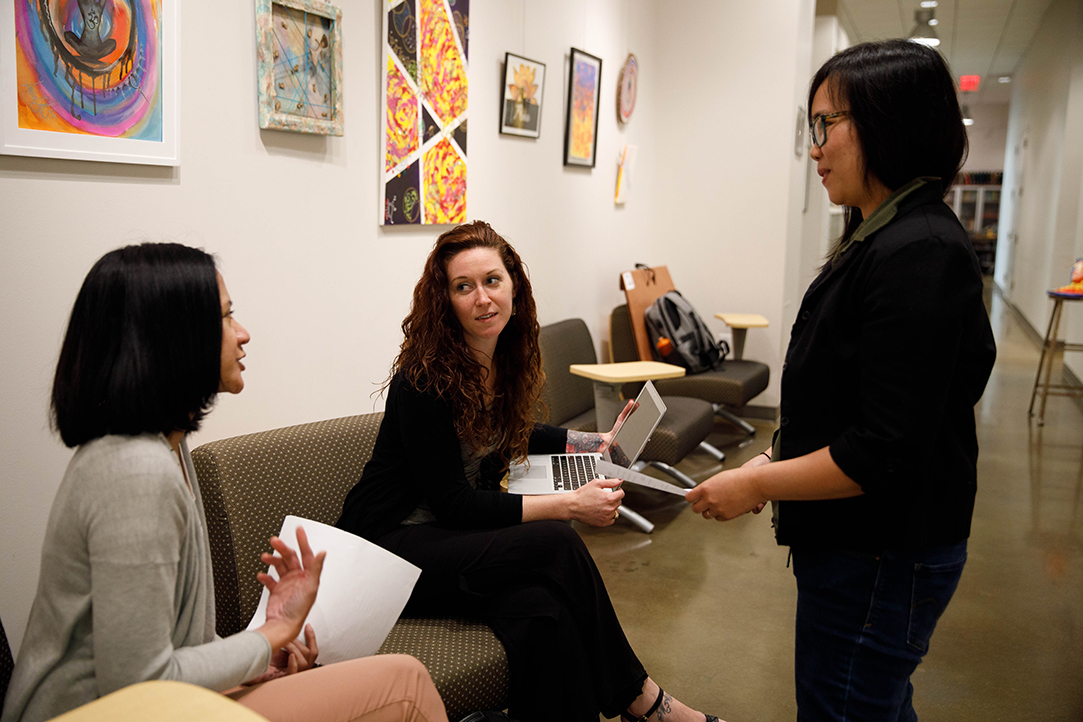MA Art Therapy bottom
Program Highlights
Clinical Training
Our students regularly cite their experience in the GW Art Therapy Clinic as one of the major advantages of the program and as a central factor in the development of their art therapist identity. Students serve a wide range of clients and hone their clinical and case management skills. Sessions are videotaped and reviewed by the student and their small case consultation group. Clinical internship options include individual, group and family art therapy; diagnostic assessments; and other expressive therapies such as dance, music and movement.
Professional Licensure
The program requires students to complete 900 internship hours, 400 of which are direct client contact. Many of those 900 hours may be applied toward the hours required for earning the title of Registered Art Therapist with the Art Therapy Credentials Board (in states that provide licensure). Applicants for licensure must complete the required hours before applying to sit for the licensure exam and become Board Certified Registered Art Therapists (ATR-BC).
Clinical and Artistic Balance
The program incorporates demanding coursework, internships at partner organizations and experience working with clients in the clinic. Every class integrates art techniques including printmaking, clay sculpture, watercolor, batik and collage. Student artists display their artwork in regular exhibits in the program’s contemporary gallery space. View samples of recent student artwork. View gallery blog.
Trauma Training
All students in the master’s program complete trauma training, an essential skill for future art therapists, in their second year. Students study trauma theories and techniques in the classroom and then apply those lessons to real-life client work, working individually with clients in our on-site GW Art Therapy Clinic and consulting on cases with experienced therapists.
“In class, I was asked to create a symbol that has meaning to me by using printmaking materials. This was a kinesthetic experience for me as I carved out the block, rolled the paints and pressed the block onto the paper. I found the process therapeutic and calming. I hope to use this type of art-making to expand my future clients’ motor and creative capabilities.”
Ashley Rivera, MA '20
Course Requirements
Optional Thesis: Master’s students may choose to complete a thesis based on original research. Students apply for the thesis option after their first semester and register for a three-credit Thesis Research course.
, full_html




